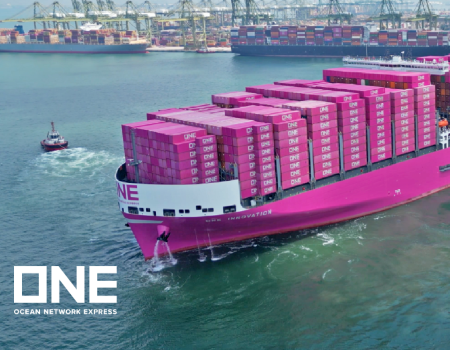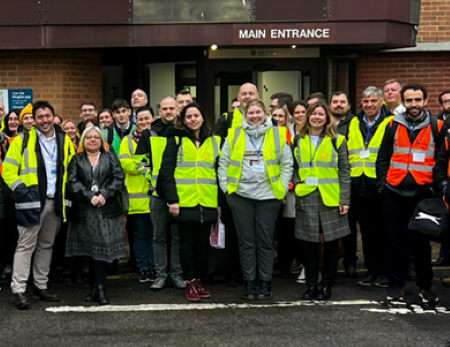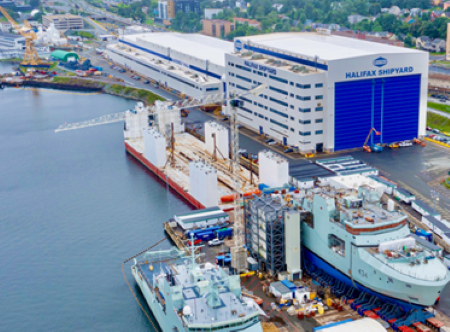The floods before and after Christmas once again highlighted how dependent our way of life has become on effective and reliable transport. Disruption to road and rail systems means we cannot easily get to work while deliveries of essential supplies such as food and fuel can have serious consequences on individuals and businesses.
Individuals have a degree of personal choice over where to live which can be traded off against the time, cost and risk of travelling further to work. Businesses on the other hand have to base their decisions on harder economic realities. The location of a factory or warehouse will be dictated by a number of factors but it will inevitably be closer to some customers than others. Managing distribution and deliveries can become complex very quickly.
As supply chains have become leaner the margin for error has become very small. The grocery sector is seeing two broad patterns emerge. First, supply chains are getting shorter as more deliveries are ordered from producers on one day for deliver to retailers the next. Second, consignments are getting smaller but more frequent. The reasons for this include demand to reduce inventory, minimising storage requirements, maximising on-shelf availability, prolonging shelf-life and offering more choice to customers. Minor disruptions can lead to major consequences, as evidenced by the recent floods and snow.
Yet while the lean and agile supply chain may suit the retailer it might not be the optimum model for suppliers further up the chain. These are used to managing full loads and large consignments to create the efficiencies that drive down costs and promote sustainability. Supply chain stakeholders such as transport, warehousing and distribution companies have responded to the challenge by re-engineering their services to introduce new levels of efficiency and resilience. They have become more agile, adaptable and flexible to meet demands which ebb and flow from day to day.
This is easier said than done. Supply chain businesses with big investments in infrastructure such as warehouses and large transport fleets may appear to offer a good fit for major contracts with national coverage. But sheer size can limit their flexibility because of the capacity built into their operations. This can be particularly problematic for the transport component of a contract where inefficient allocation and use of vehicles can lead to partial loads, poor routing and empty return journeys.
But the transport element of a distribution contract can be managed for maximum efficiency, low cost and optimum sustainability. One way is to create transport networks using established hauliers with regional expertise or specific logistics capabilities. The resources available are managed and configured centrally to provide a service completely dove-tailed with the customer’s operational requirement. The regional haulier is responsible for deliveries in its area and can use local knowledge and resources to add value.
Loads can be planned to eliminate wasted space on the vehicle. Routes can be organised to minimise vehicle journeys and road miles. Return journeys can be co-ordinated so that capacity is utilised flexibly within the same contract or to meet the needs of another customer altogether. Network synergies like these introduce an additional layer of flexibility into the overall contract but will not deliver efficiencies without careful and precise co-ordination. This is the role of the transport management specialist such as Jigsaw.
With a control-tower view, the transport management specialist is uniquely positioned to oversee the entire operation and draw together the components to create a seamless and integrated service to its clients whilst providing the agility to respond to often highly dynamic business needs.
Services like these deliver maximum benefit when the business acumen and operational expertise of the transport management specialist is augmented by highly efficient communications – telephony, data, email and back office – between stakeholders. This ensures the seamless integration of the service so that customers only need a single point of the contact for any aspect of their contract.
ABOUT JIGSAW
Founded in 2002, Jigsaw is one of the UK market leaders in the provision of large scale managed transport solutions. Through its unique structure, which utilises the network capabilities of nine regional logistics specialist partners, Jigsaw offers its customers truly national coverage for deliveries of all sizes. The network comprises over 40 locations from Dundee to Glastonbury and in excess of 4000 pieces of equipment.
Jigsaw combines the best of traditional, personalised road haulage with quality management and modern administrative systems without the associated big company overheads. This provides genuine rate benefits, offers national reach and capitalises on the strong, established regional presence of the partner companies.
The company controls and co-ordinates all daily operational activities through its National Operations Centre in Bardon, Leicestershire which allows customers to deal directly with a single point of contact. Its operational board comprises representatives from shareholders and partners as well as the company’s managing director.







